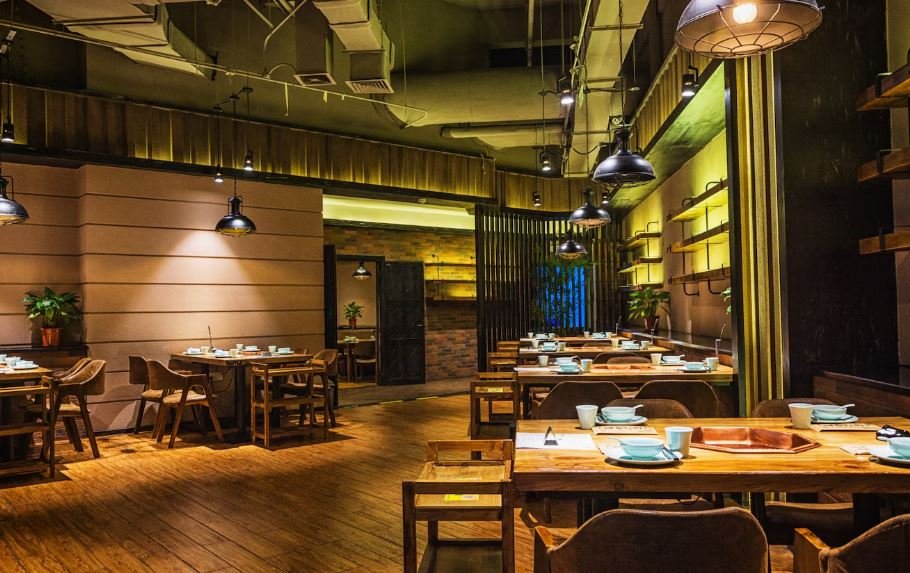
The history of St Louis Cafe Bar, located at 734 Dumbarton Road, has become remarkably emblematic of what Glasgow lost in recent years: not just a café, but a canvas on which local life was painted every day. Despite its modest location on the outskirts of Partick, this café-bar was more than just another location on a map. Many people saw it as a sign of comfort, where time seemed to slow down organically and conversations were as potent as the coffee.
St Louis was able to meet a variety of needs without ever feeling disjointed by embracing a particularly creative model that combined the intimacy of a bistro with the spontaneity of a bar and the inclusivity of a music venue. A band warming up for the evening could be unhindered by a couple sipping espressos. It was an experience that was very hard to recreate.
Venue Profile: St Louis Cafe Bar, Glasgow
| Venue Name | St Louis Cafe Bar |
|---|---|
| Address | 734 Dumbarton Road, Glasgow G11 6RD |
| Location | Partick, West End |
| Status | Permanently Closed |
| Cuisine Type | Scottish, Cajun, Brunch & Bar Meals |
| Known For | Gumbo, all-day breakfast, live music |
| Alcohol Served | Yes – Full Bar |
| Music | Live sessions & open mic nights |
| Ambience | Casual, artsy, warm and welcoming |
| Website | www.stlouis-cafebar.co.uk |
| Contact | 0141 339 1742 |
Glasgow’s café culture has changed drastically over time. Old pews have given way to sleek, well-branded venues with simple menus and polished tiles. However, few are able to convey the emotional pull that St. Louis created, especially among musicians, artists, and independent contractors, despite their meticulous design. Its playlist wasn’t created by an algorithm. It was in real time. Uncooked. local. And improvised a lot.
One frequenter compared it to a living room with beer taps, where you were recognized before you even said hello. Back at the same corner table with black coffee and the gumbo special, he had spent three winters writing a screenplay. Others remember Friday quiz nights that were more like reunions than contests, as well as first dates and job interviews.
On weekends, the café frequently changed remarkably quickly. Quiet readings during the day were replaced by unplugged music nights, where local voices were given a stage, a microphone, a listening room, and—perhaps most kindly—a complimentary drink. St. Louis gained trust without ever requesting it thanks to these acts of community service.
Through the use of a carefully chosen selection of regional vendors, the café offered dishes that were carefully chosen and surprisingly reasonably priced. In addition to being substantial, the all-day breakfasts, which included veggie haggis, were also consistently dependable. Notably courteous and well-informed, the staff treated customers more like regular visitors than like transactional customers. Through its presence and service, St. Louis enhanced the friendliness of a city that was already known for its warmth.
St. Louis served as a silent protest against the algorithmic dining experience in the framework of contemporary hospitality. Neither smartphone loyalty programs nor QR-code menus were used. Rather, it flourished due to word-of-mouth, a consistently positive atmosphere, and a changing selection of microbrews that piqued locals’ interest. Rarely produced, this authenticity fostered a loyalty that is impossible to measure with algorithms.
The location at 734 Dumbarton Road was swiftly converted into BRU, a vibrant gastropub with a South African flair, after it was closed. BRU inherits a space full of emotional sediment, despite its notable ambition—serving gourmet pizzas and brunch plates that look great in photos. The anticipation lingers like the aroma of candle wax and old wood that used to permeate the evenings in St. Louis.
This shift is indicative of a larger trend in urban hospitality, where independent venues are subtly supplanted by innovative alternatives. Despite the innovation and investment these replacements bring, cultural dilution is frequently the intangible cost. The collective memory of the community that used a place like St. Louis as their backdrop is lost along with the food and music when it closes.
The neighborhood’s rhythm is gradually changing in Partick, where boutiques and craft coffee shops coexist with historic brick storefronts. Even if the names above the doors change, there is still hope that the spirit of independent hospitality can endure because establishments like The Thornwood Bar continue to serve as social hubs. The atmosphere—a feeling that is felt rather than sold—is more important to local residents and creatives than any specific menu item.
Venues like St. Louis establish relationships that far outlast their leases by designing areas that encourage lingering without feeling rushed, where you can read alone or dance with others, where your order is remembered, and where your stories are valued. They offer emotional support for more than just the cravings of the day.
The memory of St. Louis Cafe Bar has persisted in permeating casual conversations and social media feeds ever since it closed. It is still the one location that many Glaswegians wish they had gone to at least once more. And that lingering affection might indicate that something is still alive, if only in memory, in a city that is renowned for its expressive soul.
